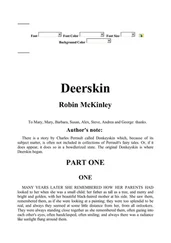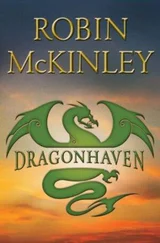Robin McKinley - Water
Здесь есть возможность читать онлайн «Robin McKinley - Water» весь текст электронной книги совершенно бесплатно (целиком полную версию без сокращений). В некоторых случаях можно слушать аудио, скачать через торрент в формате fb2 и присутствует краткое содержание. Год выпуска: 2002, ISBN: 2002, Издательство: Firebird, Жанр: Старинная литература, на английском языке. Описание произведения, (предисловие) а так же отзывы посетителей доступны на портале библиотеки ЛибКат.
- Название:Water
- Автор:
- Издательство:Firebird
- Жанр:
- Год:2002
- ISBN:9780142402443
- Рейтинг книги:4 / 5. Голосов: 1
-
Избранное:Добавить в избранное
- Отзывы:
-
Ваша оценка:
- 80
- 1
- 2
- 3
- 4
- 5
Water: краткое содержание, описание и аннотация
Предлагаем к чтению аннотацию, описание, краткое содержание или предисловие (зависит от того, что написал сам автор книги «Water»). Если вы не нашли необходимую информацию о книге — напишите в комментариях, мы постараемся отыскать её.
Water — читать онлайн бесплатно полную книгу (весь текст) целиком
Ниже представлен текст книги, разбитый по страницам. Система сохранения места последней прочитанной страницы, позволяет с удобством читать онлайн бесплатно книгу «Water», без необходимости каждый раз заново искать на чём Вы остановились. Поставьте закладку, и сможете в любой момент перейти на страницу, на которой закончили чтение.
Интервал:
Закладка:
They dreamed slow dreams of dark and cold.
Home was an immense undersea mountain, an extinct volcano riddled with tunnels and caves and underground chambers which the merfolk over many generations had shaped and enlarged to their uses. The palace was only a small part of the complex, running a hundred lengths or so along the southern slope of the mountain, above the solid, unchambered spur along which Ailsa had slipped out that morning to find Carn. Now she waited at her window, looking out over this view, and thus it was that she saw the return of the two huntsmen who had ridden down the slope at her father’s command. They rode a single blue-fin, which the one who held the reins struggled to control as it surged towards the main gate and out of sight.
Food was brought, not the punishment fare that used to follow her old escapades, but clam strips on a bed of sweet-weed, ripe sea-pears and manatee cheese. She ate and tried to read, but mostly she watched from the window as the Councillors gathered. Time passed. Twice more, unwilled, the scene she had witnessed that morning formed in her mind, and each time it was followed by the same chill question. The light on the wave-roof changed from gold to pink to purple, and when it was almost dark, a chamberlain came with a phosphor lamp and said it was the king’s wish that the Princess Ailsa should attend him. This seemed strangely formal, and when she moved, expecting him to lead the way, he coughed and said, “His Majesty is in Council, my lady.”
Startled, she fetched her diadem from its case and threaded its horns into her hair. Checking in the mirror, she decided that she looked silly wearing only the single large sapphire and an everyday necklace, so she added the white-gold carcanet with the rubies that had been her naming present from her grandmother, and the pearl and sapphire pendant and tail-bracelet that had been her mother’s favourite jewels. The chamberlain nodded approval and led her first along the familiar passageways of the domestic quarters, and on down through grander windings to the Council Chamber.
Attendants waited. Doors were flung wide. Conches sounded. A voice cried, “Her Royal Highness the Princess Ailsa attends His Majesty in Council.”
The chamber blazed with phosphor. Ailsa paused at the entrance to salute the king, finned herself gently down the aisle between the Councillors, and saluted again. Merfolk are weightless in water, so have no need for chairs. Instead of a throne, the king’s office and authority were marked by a crystal pillar on which he rested the hand that held his sceptre. There was a smaller pillar to his left. At his feet lay the bodies of the airfolk. Somebody had combed the man’s hair and beard and fastened his sword belt round him. The woman’s white covering had been straightened and her marvellous long dark hair, which otherwise would have floated all around her, had been tidied into smooth waves and fastened with oyster-shell combs.
The king beckoned Ailsa forward and gestured to the smaller pillar. Nobody, she knew, had used it since her mother died. She turned, rested her right hand on it and waited while the Councillors murmured their greetings.
“My daughter will tell you what she did and saw,” said the king.
Ailsa began with her ride out over the Grand Gulf, saying nothing about why she had chosen to go there. That was for her father alone. Otherwise she described all that had happened, including her own sensations, the detailed intensity of the moment when the lovers had made their choice to die, and the sudden mastering panic that had overwhelmed her when she had turned back from beyond the limit. She told the story collectedly, without any of the confusion and doubt she had felt when she had told it to her father. It did not take long.
“Thank you,” said the king. “Are there further questions for the princess? No? Well, that is most of what we know. There was a fight between two ships of the airfolk. This pair leapt into the sea to escape their attackers. The princess dived, hoping to rescue them, and crossed the limit. She did that, she tells me, with no special fear in the urgency of action—no more, at least, than any of us might feel—but on turning back with the airfolk, she was overcome by inexplicable terror, a sense that something very large and cold and strange . . .”
He paused. Perhaps Ailsa alone in the Council Chamber knew why. She too had felt the crystal pillar tremble beneath her hand. Cushioned by the water in which they floated, the others might well not have sensed the shock. The pillars were based on solid rock, so it was the mountain itself that must have trembled.
“. . . large and cold and strange lay below her. This is not a young woman’s fancy. She recovered herself and hitched the airfolk to her blue-fin to tow them home, but before long the blue-fin, a steady, reliable animal, bolted. The princess let him go and continued to tow the airfolk unaided. As she did so, she became convinced that whatever she had sensed beyond the limit was now following her. Again this is not mere fancy. The huntsmen who met her reported the same impression. Their own blue-fin, too, were barely controllable. When this was reported to me, I asked two of them to scout down the mountain but not to cross the limit. As they approached the limit, one of their blue-fin threw its rider and bolted, and but for good ridership the other would have done the same. As you are aware, the limit rises and falls a little with the seasons, but one of the men, who has often been down the mountain, reports that it is now many lengths higher than he has ever known it. Finally Master Nostocal, who has long had an interest in the anatomy of airfolk and has studied many bodies, found when he came to inspect these two that they still live, though in some kind of suspended animation. This is without precedent both in his own experience and in the books he has consulted since his return. Has anyone anything further to add? Councillor Hormos?”
Nobody knows how the merfolk came into being, though there are legends that say that at some point far in the past the strains of airfolk and fish came somehow to be mingled, and thus the first merfolk were born. Because of this hybrid inheritance they vary greatly in appearance, though most, like Ailsa, have a single tail, internal gills, and an upper body much like that of the airfolk. Ailsa’s fingers were half-webbed, and she had a pair of silky waving fins running from her elbows to her shoulders, and another running almost the whole length of her spine. But double tails are not uncommon, especially in the northern oceans, and in one almost landlocked sea there is a race that has legs like airfolk and can breathe a long while in the air. There are even legends of merfolk who have been born on dry land, and have not for years realised their true nature.
At the other end of the range, and also rare, are merfolk who are almost wholly fish. It might be guessed that these would be despised, as being so near to an inferior sort of creature, but though merfolk hunt and eat and use the sea beasts, they also respect them, knowing that they themselves are in a sense interlopers. They therefore value members of their own race who most closely resemble fish, believing rightly that these have a truer understanding of the many mysteries of the sea.
Councillor Hormos was such a one, an undoubted merwoman, but with a large, solid, grouper-like shape, apart from human ears, in which she wore elaborate earrings. She floated vertically from her place, saluted the king with a movement of her tail, and spoke in a quick, breathy twitter that went oddly with her appearance.
“I believe,” she said, “that Her Royal Highness has had the misfortune to disturb the Kraken.”
The Council muttered surprise. The king nodded for her to continue.
Читать дальшеИнтервал:
Закладка:
Похожие книги на «Water»
Представляем Вашему вниманию похожие книги на «Water» списком для выбора. Мы отобрали схожую по названию и смыслу литературу в надежде предоставить читателям больше вариантов отыскать новые, интересные, ещё непрочитанные произведения.
Обсуждение, отзывы о книге «Water» и просто собственные мнения читателей. Оставьте ваши комментарии, напишите, что Вы думаете о произведении, его смысле или главных героях. Укажите что конкретно понравилось, а что нет, и почему Вы так считаете.












